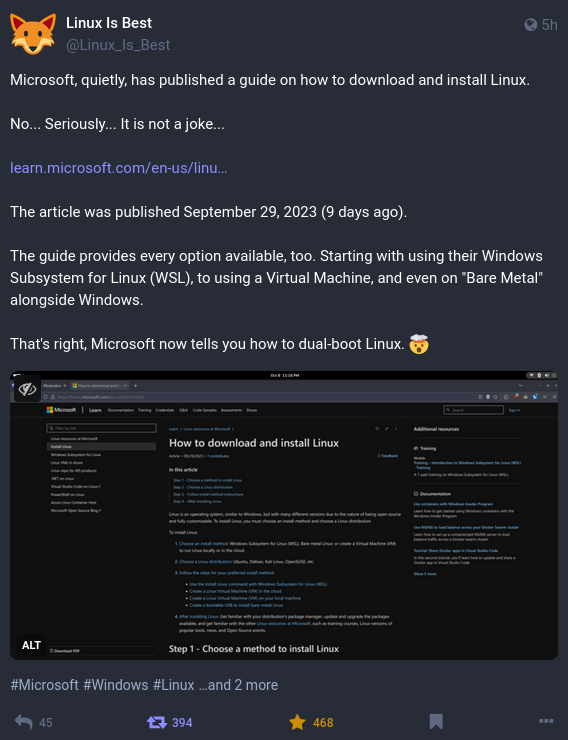this post was submitted on 09 Oct 2023
1847 points (98.2% liked)
Linux
50359 readers
1605 users here now
From Wikipedia, the free encyclopedia
Linux is a family of open source Unix-like operating systems based on the Linux kernel, an operating system kernel first released on September 17, 1991 by Linus Torvalds. Linux is typically packaged in a Linux distribution (or distro for short).
Distributions include the Linux kernel and supporting system software and libraries, many of which are provided by the GNU Project. Many Linux distributions use the word "Linux" in their name, but the Free Software Foundation uses the name GNU/Linux to emphasize the importance of GNU software, causing some controversy.
Rules
- Posts must be relevant to operating systems running the Linux kernel. GNU/Linux or otherwise.
- No misinformation
- No NSFW content
- No hate speech, bigotry, etc
Related Communities
Community icon by Alpár-Etele Méder, licensed under CC BY 3.0
founded 5 years ago
MODERATORS
you are viewing a single comment's thread
view the rest of the comments
view the rest of the comments

While I agree with you, the issues described are definitely not made up. Linux tends to remove proprietary drivers on every update and the open source drivers for Nvidia still fail with a lot of hardware.
this only happens if you install proprietary drivers manually and not through the software center (or package manager for the cli folks) on almost every given linux distro
this is why no sane linux user recommends installing download scripts from websites, you rely instead on your package manager to handle everything
I never installed any driver in any way other than the software center and it happened to me in every single update for several years until I finally bothered to search how to configure the update process to stop doing it (last month).
Multiple machines, distros, DEs, you name it. None of them ever not had this problem.